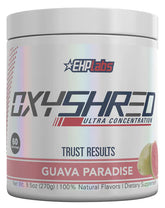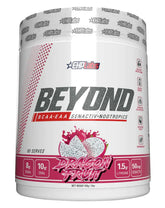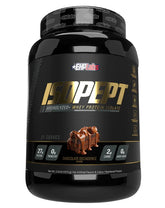Your Complete Guide to Intermittent Fasting
Intermittent fasting is one of the simplest, most sustainable approaches to dieting. It’s not about what you eat, it’s about when you eat, and that alone can completely change the way you look, feel, and perform. Whether you're looking to lose fat, gain muscle, improve mental clarity, or increase your overall health, intermittent fasting might just be the tool that fits seamlessly into your lifestyle.
In this post, we're breaking down exactly how intermittent fasting works, why it can be effective, and how you can start seeing results.
What is Intermittent Fasting?
At its core, intermittent fasting is a schedule for eating that cycles between periods of eating and fasting. It’s not a diet—it’s an eating pattern. Instead of restricting what you eat, you restrict when you eat.
Popular Intermittent Fasting Methods
- 16/8 Method: The most popular method, you fast for 16 hours and eat in an 8-hour window. For example, you might eat between 12 PM and 8 PM, then fast until noon the next day.
- 5:2 Method: Eat normally for five days of the week and limit your intake to 500-600 calories on two non-consecutive days.
- 24-Hour Fasts: Once or twice a week, fast for a full 24 hours. Eat dinner one day and skip meals until dinner the next.
The Science Behind Intermittent Fasting
When you fast, your insulin levels drop, which helps your body tap into stored fat for energy. Fasting also boosts human growth hormone (HGH) and may trigger cellular repair processes like autophagy, where your body removes damaged cells and regenerates newer, healthier ones.
The Benefits of Intermittent Fasting
1. Fat Loss
By restricting your eating window, you naturally consume fewer calories and give your body more time to burn fat. When insulin is low during fasting, your body can more efficiently burn stored fat.
2. Muscle Retention
Worried about losing muscle? Don’t be. Numerous studies show that as long as you're getting enough protein and staying active, you can preserve lean muscle mass while you shed fat. Pair fasting with regular strength training, and you're good to go.
3. Mental Clarity
Many fasting practitioners report enhanced focus and productivity. When your body isn’t constantly digesting food, your brain is free to operate on high octane, fuelled by fat (specifically ketones). The result is clearer thinking and sharper focus.
4. Longevity
There’s growing evidence that fasting may increase lifespan by promoting autophagy, a process that cleans out damaged cells and regenerates new ones. Studies in animals show potential for longevity, and while human studies are still ongoing, the early results are promising.
5. Simplified Eating
One of the most underrated benefits is that intermittent fasting simplifies your life. No more constant snacking or stressing about when your next meal is. Just focus on eating within your window, and you’re set.
How to Start Intermittent Fasting
1. Ease Into It
If you're new to fasting, don’t go full throttle right away. Start with a 12-hour fasting window, then work your way up to 16 hours. For example, fast from 8 PM to 8 AM, and gradually extend that window by delaying breakfast.
2. Choose Your Fasting Window
Pick a window that works best for your lifestyle. If you’re someone who enjoys a big dinner, then break your fast in the afternoon. Early riser? Consider eating in the morning and fasting from early evening.
3. Handling Hunger
In the first few weeks, hunger will hit you—especially if you’re used to eating three meals along with snacking. Drink water, black coffee, and/or tea to suppress appetite.
Pro tip: Hunger comes in waves. Wait 15 minutes, and you’ll likely forget about it.
4. Hydration & Electrolytes
Stay hydrated throughout the day. Drink lots of water, and if you’re fasting for extended periods, consider supplementing with electrolytes to maintain balance and avoid feeling sluggish.
5. Training During Fasting
Fasted workouts can be a powerful fat-burning tool, but they’re not for everyone. If you prefer to train fasted, stick to low-intensity cardio or weight lifting. For heavy lifting or high-intensity sessions, consider eating before your workout for extra energy.
Common Mistakes to Avoid
1. Overeating During Your Window
Just because you’re fasting doesn’t mean you can eat whatever you want during your eating window. Stick to whole, nutrient-dense foods. Overeating junk will negate the benefits of fasting.
2. Not Eating Enough
Some people get so into fasting that they under-eat, which can lead to fatigue and muscle loss. Ensure sure you're consuming enough calories and hitting your protein goals during your eating window.
3. Breaking the Fast Incorrectly
How you break your fast matters. Stay clear of heavy, high-sugar, or processed foods as your first meal—they’ll spike insulin levels and leave you feeling flat. Opt for balanced meals with protein, healthy fats, and fibre.
4. Lack of Consistency
Like any fitness regimen, consistency is key. Skipping a day here or there won’t ruin your progress, but if you’re constantly changing your fasting window or missing fasts, it will be harder to see results.
Who Should NOT Do Intermittent Fasting?
- People with Medical Conditions: If you have diabetes, low blood pressure, or other health concerns, consult a doctor before starting. Fasting can affect blood sugar levels and medication absorption.
- Women and Hormones: Some studies suggest that fasting might disrupt menstrual cycles in some women. If you're experiencing irregular periods, it might be worth adjusting your approach or consulting with a health professional.
- People with Eating Disorders: If you have a history of disordered eating, intermittent fasting may not be for you. The strict structure can trigger unhealthy eating habits.
Myths and Misconceptions
1. "You’ll Lose Muscle"
This is the most common myth. As long as you’re eating enough protein and strength training, your body will prioritize fat loss over muscle breakdown. Fasted muscle loss is not something to worry about if you're doing it right.
2. "Starvation Mode"
Contrary to popular belief, skipping a few meals won’t throw your body into "starvation mode." This is a long-term survival mechanism that kicks in after prolonged periods of extreme calorie deprivation, not after an 18-hour fast.
3. "It’s Too Hard"
Yes, the first few days can be tough. But hunger gets easier to manage as your body adapts. Soon enough, you’ll find it easier to stick to fasting than constant snacking throughout the day.
How to Measure Success on Intermittent Fasting
1. Focus on Fat Loss, Not Weight Loss
The number on the scale might not change much, but if you’re losing inches around your waist and feeling leaner, that’s progress. Remember, muscle is denser than fat, so don’t get fixated on the scale. Take regular selfie progress photos to see your success over time.
2. Energy Levels
Track how you feel day-to-day. Are you more energized? Do you have better mental clarity? If you’re feeling good and strong, that’s a sign that intermittent fasting is working for you.
3. Workout Performance
If your performance in the gym is staying steady or even improving while fasting, that’s a win. Use performance benchmarks like your lifts, running time, or how you feel during workouts to gauge your progress.
4. Mental Clarity
Many people report feeling more focused during their fasting periods. If you notice an improvement in productivity, mental sharpness, or problem-solving, that's another indicator that fasting working.
Conclusion
Intermittent fasting is a flexible, sustainable way to improve your health, lose fat, and boost mental clarity. By focusing on when you eat rather than what you eat, fasting simplifies your eating habits while delivering results. Whether you’re looking to shed some weight, maintain muscle, or increase your overall health, intermittent fasting is worth a try.
Editor’s Picks
Gold Standard 100% Whey by Optimum Nutrition
- From $74.90
$85.90- From $74.90
- Unit price
- / per
OxyShred by EHP Labs
- $63.90
$79.90- $63.90
- Unit price
- / per
OxyGreens by EHP Labs
- $52.90
$57.90- $52.90
- Unit price
- / per
Beyond BCAA + EAA by EHP Labs
- $52.90
$59.90- $52.90
- Unit price
- / per
IsoPept by EHP Labs
- $59.90
$79.90- $59.90
- Unit price
- / per















